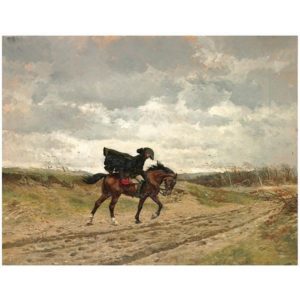Welcome to my site
I hope to use it to post material about one of my main interests, the history of the period between 1789 and 1815. I was drawn early on to this period (that of the French Revolution and the era of Napoleon) because it was a time of tremendous upheaval in which the world seemed to advance at great speed, sometimes in a measured and rational way (the Code Napoleon), sometimes lurching and stumbling (the anarchy and the long wars). It is also an age of enormous historical significance, with the countries of Europe shaped and reshaped, political systems destroyed and refashioned and the world, effectively, turned upside down and shaken. Great historical figures, such as Napoleon, Nelson, Metternich or Beethoven, dominate and these are personalities whose lives and actions continue to be significant. But, if I am honest, for me the impact of this age of change on ordinary people was always more compelling, the way in which grand events sweep people up or simply pass them by. The accounts by soldiers and sailors, and of civilians caught up in some of the drama, are particularly revealing. It was an age of increasing literacy, and people were describing events as never before. They noted what was happening in the wider world, but what they had to say about their own lives is particularly revealing.
To give a few examples. In sleepy Barletta, on the Adriatic coast of Italy, as the republicans overran town after town, Camillo Elefante jotted down events in his diary (Di tutto ciò che accade in questa Fedelissima, Ed Illustrissima Città di Barletta). It wasn’t Napoleon who bothered him, or Nelson who inspired him. No, he was exercised because “people were to be allowed into church wearing everyday clothes and could sit where they pleased, and this was done so as not to prefer the aristocracy and as a mark of equality”. And by the arrival of the French republican armies, purveyors of this new equality. He was half impressed, noting on 21 March 1799 that:
“Very few of the French soldiers go to church as many have abandoned religion altogether or if they have retained it inwardly they don’t express it so that they aren’t mocked or ridiculed. It is the same with the officers and some of them are right thinking and moral. Few people now visit the San Sepolcri, the women especially stay away in order to avoid trouble from the French who, although they obey their officers in wartime, do not respect anyone else and they greet you looking in your eye, the wondrous results of equality, anarchy and irreligion.”
Or here is the account of Roustam Raza, Napoleon’s bodyguard, of the battle of Friedland in 1807. There the fate of Europe was decided when the French beat the Russians and went on to dominate continental Europe for the next five years. Roustam was an eyewitness to this critical event, but he his account of the battle doesn’t feature in military or political histories, perhaps because he spent much of it riding around looking for tasty herbs:
“When we arrived at Friedland we saw that the Russian army drawn up in front of a large river. The next day the emperor attacked with some skirmishers and hid the bulk of his army in some woods. The skirmishing was designed to gauge the strength of the enemy and it took place all along the line, so that there was fighting from seven in the morning until three in the afternoon. Whilst the emperor was examining a map with Mirza, Bessières’ mameluke, I took the opportunity to go and look for some wild sorrel. As I was doing so a roundshot bounced so close to me that it almost killed me.”
Then there’s the short letter of Corporal Jean Michaud of the Imperial Guard, written to his anxious parents and sent from Moscow in late September 1812 just after the city was burned down but before the horrendous retreat through the snow. His letter, written amidst such epoch-defining events, revolves around his own concerns (food and health), and, between the lines, a longing for peace, rather than the fate of his emperor and his empire:
“I can also tell you that Moscow has largely been burnt down for two days after we entered the city the inhabitants set fire with their own hands to the most beautiful houses in the city. We found a number of large warehouses full of wine and flour, and other stores which were burnt down. The city has been given over to pillage since we entered but because it is such a large city you can always come across the odd house which has been spared. At the moment we are waiting to see whether it will be peace or whether the war will continue – at the moment it is uncertain which one it shall be. … I don’t know if we will march further or whether we will return to France. I am around 3000 miles from you at present, so I hope we have gone far enough now.
There’s nothing else to tell you at present, thanks be to God that I am perfectly well. I close by embracing you with all my heart and I will always be your loving son. Please don’t forget to send me news of my niece.”
These are the voices of the ordinary people who lived and managed and coped in extraordinary times. My interest in the lives of these unknown or forgotten people of the age of Robespierre and of Napoleon has led, in practical terms, to me publishing some 12 books and dozens of articles on the period and the period’s personalities. I want to present some of that material here and hope you find it enjoyable.
Please take a look around and remember Intrent securi qui quaerunt vivere puri
Jonathan North